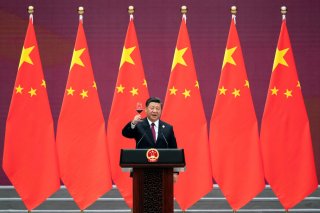How the Coronavirus Pandemic Is Changing the World—and the Future
Will nothing be untouched?
Alone, the virus would be seen as a short-term disruption to global economic activity. Some companies managed to rapidly shift supplies outside of China in the early days of China's quarantines, while others retooled factories or relied on surplus stock. But over the past several years, moves away from just-in-time delivery and political or other shocks including China's unofficial boycott of South Korea over the THAAD deployment and the Fukushima disaster have increasingly forced companies to ensure flexibility in their supply chains, or to try to nearshore or onshore to better insulate from future global shocks.
What Broader Global Economic Disruptions Will Occur?
Commodity-dependent countries across the globe face longer term impacts from several months of consumption disruptions, and in some cases these problems are likely to linger far beyond the immediate term. In the Middle East and North Africa, where the expansion of U.S. energy production and the drive for renewables were already impacting supply and demand patterns, the additional drop in consumption related to COVID-19 will majorly impact national financial stability. Saudi Arabia, the United Arab Emirates and others were facing headwinds in economic and reform efforts before COVID-19, and will still need to address rising youth populations with high expectations of government services, all amid falling revenues.
If reform efforts stall out, government reserves will shift to prioritize social spending over economic diversification, or over infrastructure development and outbound investment. Partially completed reforms may also prove socially destabilizing even as social spending picks up. While some countries could expect to turn to China at a time like this despite the cost to national sovereignty or at least political maneuverability, as noted above, China may well need to prioritize its own inward spending. Iranian behavior after a severe initial hit from COVID-19 will also play into regional competition and relations: Political upheaval in Iran may be just as destabilizing regionally as would a consolidation of Iranian government control.
A final place to watch over the coming decade for lingering impacts from the COVID-19 pandemic are countries heavily dependent upon external support, those squeezed between larger powers, or those on the global fringes. Pacific island nations, caught up in rising competition between China on one hand and the United States and Australia on the other, are facing major economic constraints in dealing with COVID-19, from the collapse of tourism to reductions in cargo and supplies. Places like Belarus, which have sought to balance Russian, European and growing Chinese interest, or Mongolia, which saw a significant drop in coal exports to China in the first quarter of the year, may find themselves with fewer options to retain independence of action.
Thinking Beyond COVID-19 is republished with the permission of Stratfor Worldview, a geopolitical intelligence and advisory firm.
Image: Reuters.

